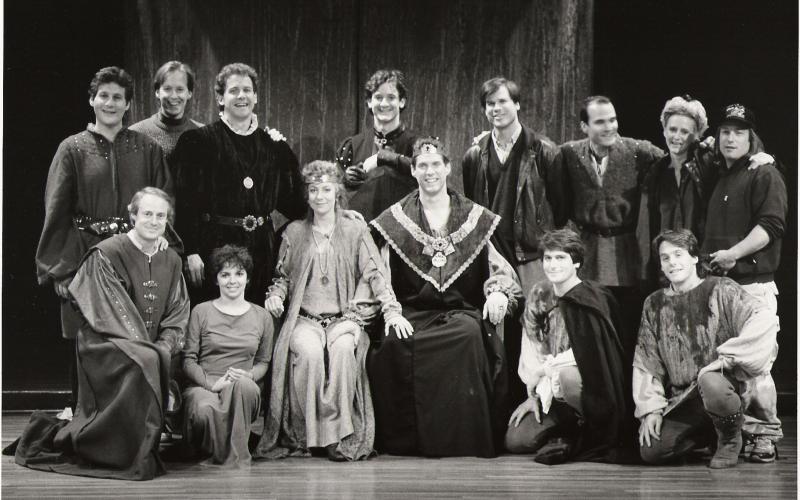When Julia Rodriguez-Elliott and Geoff Elliott Launched their theater company, A Noise Within, in a tiny Glendale space 25 years ago, their critics were not optimistic. “There were people who said we’d be dead within two weeks,” Rodriguez-Elliott says. The mission of A Noise Within has always been to produce classical theater (Shakespeare, Shaw, Arthur Miller). Now, as they begin their Silver Anniversary with a production of Tom Stoppard’s Arcadia, the two discuss their Pasadena-based theatre company, the key to its survival, and the highs and lows of a quarter decade of repertory theater in Southern California.
What has been the key to your success?
Julia Rodriguez-Elliott: I’d like to think A Noise Within opened doors for more classical work. Geoff and I made a commitment early on that this would be what we devoted our lives to.
Geoff Elliott: There was a real thirst amongst the actors in L.A. to do this kind of work. With our first production of Hamlet in the spring of 1992, we were flooded with high-caliber resumes, and we were shocked.
JRE: I think of Great Expectations, particularly the first time we did it [during the 1995-1996 season]. It was a huge undertaking for us in terms of the episodic nature of the piece and the epic journey of that production and how we might achieve that with the limited resources we had at the time.
Which productions would you consider the biggest mistakes? What did you learn from them?
GE: How much time do you have?
JRE: We learned a great deal from our first production of A Christmas Carol[during the 1996-1997 season]. We really learned that you have to be careful about biting off more than you can chew. Artistically it was very successful, but we didn’t have the infrastructure to be able to do the production we wanted to do. I think that’s always been part of the DNA, to take big bites and be scared, which is always healthy.
The shortening of attention spans and a classic theater repertoire seem incompatible.
JRE: I find that students are more engaged than they ever have been. There’s something about being in a theater, the humanity of that and what the space does to you. This space really brings you in. Maybe we’re doing it better? Part of it is theme, looking for that communal experience.
GE: It may be that our attention span is shortening, but it’s possible that’s a myth. Our audiences are incredibly intelligent. They are picky. They are not easy to please. I tend to think that story is king. When a play is three and a half to four hours long, you better know what you are doing.
What advice would you give up-and-coming theater companies on the best way to survive and ultimately thrive in Los Angeles?
GE: Stick to your knitting. If you have found something that really turns your crank, the type of theater you think speaks to our audience today, stick with it. Commit to what you are doing and have a singular focus to it. Generally good things happen when you do.
A NOISE WITHIN STAGED THEIR FIRST PRODUCTION—”HAMLET”—25 YEARS AGO
PHOTOGRAPH BY FRED VICAREL














